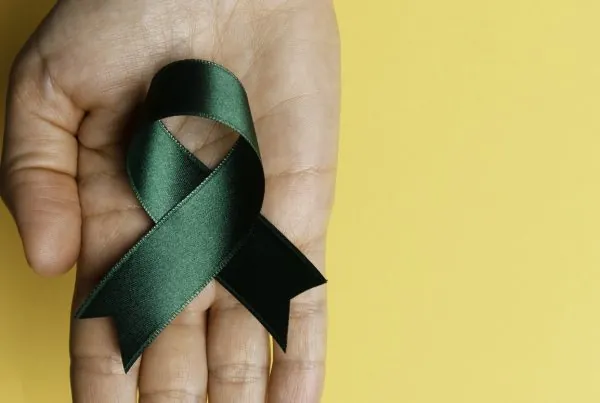Cognitive behavioral therapy (CBT) has a long history as one of the most effective and successful talk therapy methods to be developed in modern psychotherapy. But what is it, and how does CBT for bipolar disorder in teenagers help?
Understanding the power of therapy is important; more than just a friendly conversation, an experienced therapist leads and guides a patient through a structured, long-term dialogue and goal-oriented mission plan, helping patients learn to identify and isolate the thoughts and behaviors that characterize their mental health problems and make improvements day by day.
For people with bipolar disorder, a chronic mood disorder that can drastically change a person’s mindset, personality, and behavior, therapy can be one of the most powerful tools to mediate symptoms and lead a fulfilling and normal life. This is especially important for teens – an early assessment and treatment, like CBT for bipolar disorder, can help teens develop the coping skills they need to continue to take control of their disorder for years to come and recognize when they need outside help and support.
What is Bipolar Disorder?
Bipolar disorder is a mood disorder, the same class of condition as severe or chronic depression. Indeed, depression is one of bipolar disorder’s most common symptoms, in addition to mania or hypomania.
Where depression is a debilitating and inescapable level of sadness and anhedonia (joylessness), mania is the opposite, albeit similarly debilitating mental state, where people experience restlessness and boundless energy in addition to dangerous feelings of grandeur, a loss of natural inhibition, and heightened irritability. It is not uncommon for symptoms of true mania to be severe enough to lead to hospitalization. Meanwhile, hypomania involves a lower intensity of symptoms than regular mania.
A case of bipolar disorder can be classified in multiple different ways.
- Bipolar I involves at least one severe manic episode, with potential (but not necessary) depressive episodes.
- Bipolar II describes both hypomanic and depressive episodes, but never just one or the other. A person who has experienced a severe manic episode has bipolar I, even if they experience hypomanic episodes from time to time.
- Cyclothymia is described as a form of bipolar disorder that features milder symptoms than both bipolar I and II, with moderate symptoms of hypomania and depression. Cyclothymia is only diagnosed after at least two years of chronic mental health symptoms.
- Other forms of bipolar disorder are either classified as a specified bipolar and related disorder or an unspecified bipolar and related disorder. The former describes symptoms that don’t quite match bipolar I, II, or cyclothymia, while the second is used to label patients who are likely struggling with bipolar disorder but have not been fully or thoroughly assessed yet.
Rapid Cycling in Bipolar Disorder
It should also be noted that, in only about one in ten cases, bipolar disorder can be rapid cycling. In cases of rapid cycling bipolar disorder, depressive and/or manic episodes occur more than four times a year. The average bipolar cycle takes months, contrary to popular belief. People who struggle with bipolar disorder are not constantly changing and shifting in their emotional state from extreme highs to extreme lows. Their mania comes and goes, as does their depression (if they get depressed).
Symptoms of bipolar disorder can take time to properly recognize and professionally assess. Mental health professionals must work with a patient to identify their symptoms and past episodes, and rule out potential conditions that may otherwise explain certain symptoms or might interfere with a diagnosis, such as:
- Drug use and substance use disorder
- Schizoaffective disorder
- Attention-deficit/hyperactivity disorder
- Major depressive disorder
- Borderline personality disorder
One of the reasons it is important to correctly diagnose a teen with bipolar disorder is that bipolar disorder requires a different treatment process from any of the above mental health issues.
There are also specialized mood stabilizer medications that are typically only prescribed for patients with bipolar disorder. Medication can help moderate-severe symptoms. But medication alone is often insufficient to completely manage bipolar disorder. This is where therapies such as CBT for bipolar disorder and a one-on-one psychotherapy approach become important.
What is Cognitive Behavioral Therapy?
Cognitive behavioral therapy is a form of psychotherapy developed through the combination of two different forms of talk therapy, namely cognitive therapy and behavioral therapy. Both of these treatment methods were developed separately and for different mental health problems.
Cognitive therapy is characterized by a thought-based approach. Patients learn to identify and alter problematic thoughts through a combination of thought exercises, and by learning to separate the thoughts that trigger their negative moods from healthier thinking patterns. The idea, in many cases, is to take a patient away from blaming the past or themselves and to work on being more mindful of how their own thoughts can spiral them into different situations.
CBT for Bipolar in Teens
Behavioral therapy aims to address and alter the things we do. By focusing on actions, behavioral therapy can help teens learn better coping skills, stress management options and identify maladaptive behavior that contributes negatively to their mental health. A big part of behavioral therapy is learning to change these negative behaviors, and encourage positive action.
A combination of thought analysis and maladaptive behavioral pattern recognition can help teens with bipolar disorder through intensive one-on-one sessions, usually lasting an hour or longer.
Research shows that individuals undergoing cognitive behavioral therapy for bipolar disorder usually had fewer hospitalizations, fewer episodes, and lower rates of medication use while improving their psychosocial functioning, reducing the severity of their manic symptoms, and reducing depression.
Do I Need Treatment?
If you or a loved one are struggling with consistent and recurring depressive thoughts, as well as occasional symptoms of mania or manic thought – from completely uncharacteristic feats of performance at work or school after months of being in a slump or unusual energy levels and a change in personality – you may want to talk to a counselor or therapist about getting a professional assessment for your mental and physical health.
Bipolar disorder can be a lifelong condition, and though some people can cope with mild symptoms while undiagnosed, it can be a debilitating condition for millions of others.
Get the help you deserve today. Reach out to Visions Treatment Centers for more information.








